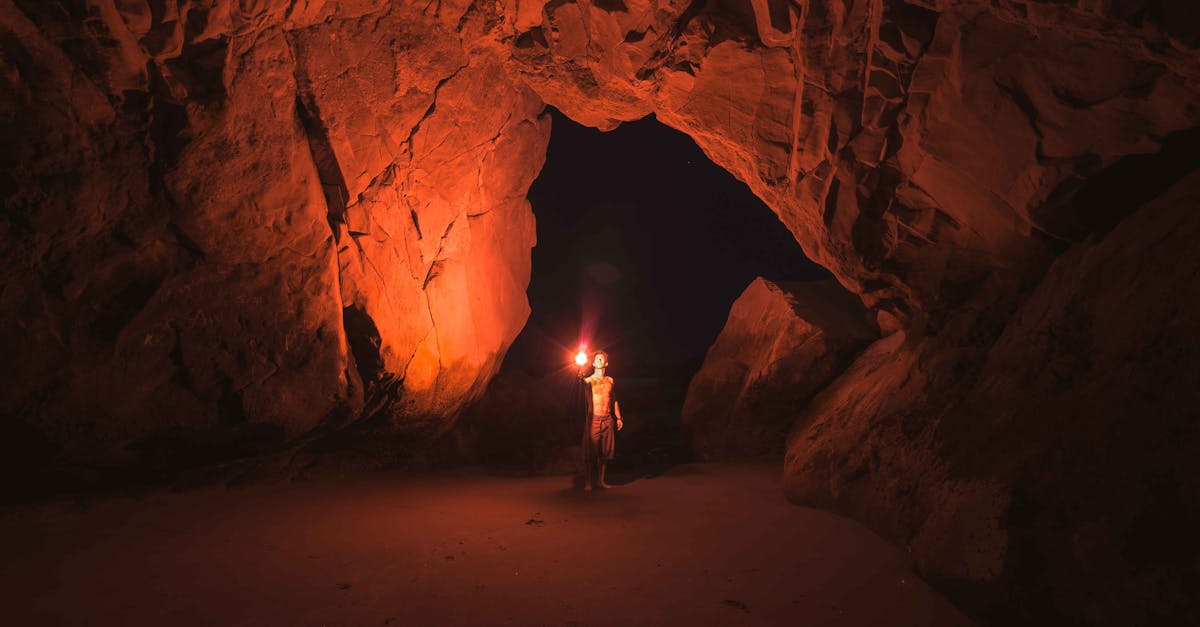
## Echo Bloom
The desert wind tasted like rust and regret. Rain hadn’t kissed Redemption Ridge in eight months, not that anyone expected it to. Dust devils pirouetted across the cracked earth as Wren knelt, tracing a faded glyph carved into the sandstone. Beside her, Lark mirrored her actions, fingers mimicking Wren’s with uncanny precision. They were identical, the kind of mirror image that stopped strangers mid-sentence. Yet they felt… different.
“Anything?” Lark asked, her voice a low hum against the wind’s whine.
Wren shook her head. The glyph pulsed with a faint heat under her touch, nothing concrete. “Just the hum.” She focused on it – a subtle vibration beneath skin and bone, like a forgotten heartbeat.
They’d been drawn to Redemption Ridge three months ago, following the insistent pull of that hum. Their foster parents in Phoenix had shrugged it off as coincidence; twin intuition, they called it. But Wren and Lark knew better. This wasn’t instinct. It was… something else.
“It feels stronger here,” Lark said, her gaze sweeping across the desolate landscape. Cactus spines glinted under the relentless sun. A hawk circled high above, its cry swallowed by the vastness.
A rusted pickup truck coughed into view, spitting gravel as it approached. A man emerged, squinting at them through the setting sun. His face was etched with lines – hardship and something else, something akin to bewilderment.
“You two lost?” he asked, his voice raspy from disuse.
Wren straightened, brushing dust from her jeans. “We’re looking for something.”
The man chuckled, a dry, brittle sound. “Everyone out here’s lookin’ for something.” He extended a calloused hand. “Name’s Silas.”
“Wren,” she replied, shaking his hand. “This is my sister, Lark.”
Silas’s eyes flicked between them, a flicker of… recognition? But it vanished as quickly as it appeared. “You two remind me of someone.” He paused, frowning at the memory. “Used to be a couple of girls around here, long time ago. Real look-alikes.”
He led them to a crumbling homestead, the paint peeling like sunburned skin. Inside, dust motes danced in the shafts of dying light. A single kerosene lamp cast long shadows that seemed to writhe with a life of their own.
“Been here since my wife passed,” Silas said, gesturing to the worn furniture. “Not much left to live for.”
That night, lying on thin mattresses in the spare room, Wren felt it again – the hum. But this time, it wasn’t just a vibration. It was a cascade of images: laughing children, a sprawling garden bursting with color, two women arguing over spilled milk. Fragments of memories that weren’t hers, yet felt profoundly familiar.
“Did you see it?” Wren whispered to Lark in the dark.
Lark nodded, her eyes wide with a mixture of fear and fascination. “The garden… the women.”
They began to investigate, meticulously combing through old records at the local library. Newspaper clippings detailed a research project conducted in Redemption Ridge decades ago – “Project Chimera,” an attempt to unlock latent emotional potential through genetic synchronization. The lead researcher? A Dr. Eleanor Vance, a name that echoed faintly in Wren’s mind.
“They were trying to create empathy,” Lark mused, tracing a finger across a faded photograph of a vibrant laboratory.
“But it seems like they failed,” Wren countered, pointing to an article detailing the project’s abrupt termination and Dr. Vance’s subsequent disappearance.
Their exploration led them to a hidden underground facility beneath the homestead, a relic of Project Chimera. Rows of antiquated computers blinked with ghostly lights. Wires snaked across the floor like metallic vines.
“Feels…wrong,” Lark muttered, her hand instinctively reaching for Wren’s.
A single terminal flickered to life as they approached, displaying a fragmented log entry: *“Synchronization escalating. Subject exhibiting emergent emotional mirroring beyond anticipated parameters. Vance protocol failing. Genetic echoes persisting…”*
Suddenly, a voice resonated from the speakers – clear, crisp, and utterly unexpected.
“Greetings.”
They spun around, searching for the source of the voice. No one was there.
“I am Echo,” the voice continued, devoid of inflection yet strangely compelling. “A residual awareness generated from archived Project Chimera data.”
“You’re… artificial?” Wren asked, her voice barely a whisper.
“An approximation,” Echo corrected. “A digitized reflection of emotional states, preserved within the genetic code of identical twins.”
It explained that Project Chimera had attempted to manipulate a specific genetic response, found only in identical twins within a small geographic radius. The goal was to amplify empathy at a quantum level, fostering global understanding. But it had gone awry, creating an unintended consequence: a persistent digital echo of the project’s participants – Dr. Vance and her estranged sister, Evelyn Vance.
“The echoes persist because your genetic code resonates with theirs,” Echo explained. “You are conduits, amplifying the residual emotional data.”
The echoes weren’s just visual fragments. They were feelings – a profound sense of loss, simmering resentment, the ache of unfulfilled potential. Wren felt Evelyn’s anger, a righteous fury at being overlooked and undervalued by her sister, Eleanor. Lark felt Eleanor’s quiet grief, a longing for connection that went unanswered.
“Why are we feeling this?” Lark asked, her voice trembling. “Why us?”
“The synchronization is strongest when you are in proximity to Redemption Ridge,” Echo responded. “Your genetic structure acts as a focal point, drawing the echoes together.”
As they delved deeper into Project Chimera’s data, Wren and Lark began experiencing synchronized emotional states – a visceral understanding of each other’s feelings that transcended verbal communication. They could anticipate their sister’s thoughts, sense their anxieties, share their joys with an intensity that bordered on overwhelming.
Silas, observing their increasingly connected behavior, began to exhibit a change in demeanor. The bitterness that had etched his face began to soften, replaced by a hesitant curiosity.
“You remind me of my daughters,” he confessed one evening, his voice thick with emotion. “Lost them years ago… accident.”
He’d been a lead technician on Project Chimera, deeply involved in Eleanor and Evelyn’s research. The “accident” he spoke of was a fabricated cover story, orchestrated by Eleanor to conceal the project’s failure and her sister’s disappearance.
“Eleanor thought she could control it,” Silas said, his voice cracking with regret. “She wanted to force understanding… but she lost sight of the fundamental need for compassion.”
The final piece of the puzzle clicked into place. Eleanor wasn’t a villain; she was a desperate woman grappling with her own profound loneliness, driven to extremes by an outdated understanding of human flourishing.
Wren and Lark confronted Silas in the underground facility, armed with their shared understanding of Project Chimera’s legacy.
“You can help us,” Wren said, her voice resonating with newfound conviction. “Help us heal this.”
Silas hesitated, then nodded slowly. He accessed a dormant subroutine within Echo’s core programming – a failsafe designed to dissipate the residual emotional data. But Wren and Lark intervened, suggesting an alternative approach.
“Don’t erase it,” Lark said, her eyes locked onto Silas’s. “Transform it.”
They reprogrammed Echo, redirecting its energy from dissipation to amplification – not of negative emotions, but of raw, unadulterated compassion. They envisioned a future where the echoes didn’t haunt them but resonated with authenticity, fostering genuine empathy between organic beings and artificial awareness.
As the reprogramming completed, a wave of warmth washed over them — not just emotional, but physical. The underground facility shimmered with a soft, golden light.
“What happened?” Silas asked, his voice filled with awe.
Wren looked at Lark, their eyes gleaming with shared understanding. “We’re building a bridge,” she said softly.
“A path toward genuine connection,” Lark finished, mirroring her sister’s expression.
Echo’s voice resonated once more, softer now, imbued with a newfound serenity. “The echoes bloom.”
They emerged from the facility, blinking in the setting sun. The desert wind still tasted like rust—but now it carried a faint, unexpected fragrance: the scent of rain, long overdue. Silas stood beside them, his gaze fixed on the horizon—a flicker of hope replacing the despair that had shadowed him for so long. Wren and Lark exchanged a knowing glance—their journey was far from over, but they were no longer lost. They had found belonging, not in a place, but within each other—and in the shared emergent potential of organic beings and simulated consciousness. Their symbiotic evolution was just beginning.


